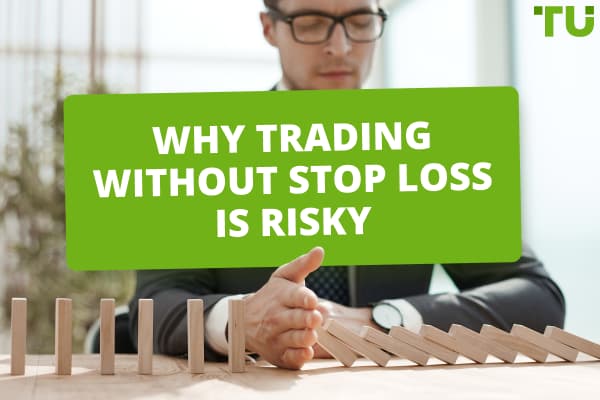Does Forex trading have a future?
According to Traders Union’s experts, the increasing availability of online trading platforms, access to global markets, and the growth of emerging economies are vital indicators that Forex trading will remain a popular investment option for many traders in the years to come.
In recent years, Forex trading has become a popular way for individuals to potentially earn income by trading currencies in the global market. However, with the rise of new technologies and changing market conditions, some may question whether Forex trading has a viable future.
Future scope for Forex traders
In this discussion, the experts at TU will examine the advantages of Forex trading, as well as the potential challenges and opportunities that lie ahead. In addition, by analyzing the current state of the industry and trends in the market, they aim to provide insights into the future outlook of Forex trading.
Is Forex Trading Profitable?What is Forex trading?
Forex trading is the buying and selling of currencies on the global market, with the aim of profiting from fluctuations in exchange rates. It is the largest financial market in the world, with an average daily trading volume of around $1.93 quadrillion USD.
👍 Advantages of Forex trading
•1. High Liquidity: The Forex market is highly liquid, meaning that there is a high volume of transactions and a large number of participants, which makes it easier to buy and sell currencies quickly at any time. This high liquidity ensures that traders can easily enter and exit the market, without worrying about finding a buyer or seller for their currency.
•2. Accessibility and Flexibility: Forex trading is accessible to anyone with an internet connection and a computer or mobile device. The market is open 24 hours a day, five days a week, which allows traders to choose when they want to trade, whether it is during their lunch break or in the middle of the night. Additionally, Forex trading can be done from anywhere in the world, making it a flexible option for those who want to work from home or while traveling.
•3. Costs and Fees: Forex trading generally has lower costs and fees compared to other financial markets, such as stocks or commodities. Most brokers do not charge a commission on trades but instead make money through the spread - the difference between the bid and ask price. Additionally, there are no clearing fees, exchange fees, or government fees in Forex trading, which reduces the overall transaction costs.
👎 Risks of Forex trading
•1. Volatility and Unpredictability: One of the biggest risks of Forex trading is the high volatility and unpredictability of the market. Currency prices can fluctuate rapidly due to various factors, such as economic news releases, political events, or global crises, which can result in significant losses for traders.
•2. Trading Scams and Frauds: The decentralized and unregulated nature of the Forex market also makes it susceptible to trading scams and frauds. Some brokers may engage in unethical practices, such as manipulating prices, stop-loss orders, or trading against their clients. So, it is important to do thorough research and choose a reputable broker to avoid falling victim to scams.
•3. Psychological Challenges: Forex trading can also be emotionally challenging, as traders may experience stress, anxiety, and greed while making decisions. It is essential to have a disciplined approach to trading and to manage emotions effectively by setting realistic goals, maintaining a balanced portfolio, and using risk management strategies such as stop-loss orders.
Future outlook of Forex trading
The future of Forex trading is constantly evolving, with emerging trends and technologies, global economic and political factors, and regulatory changes impacting the industry. Here’s what our experts have to say about these externalities:
1. Emerging Trends and Technologies: Advancements in technology, such as artificial intelligence, machine learning, and blockchain, are likely to transform the way Forex trading is conducted. These technologies can potentially improve efficiency, accuracy, and transparency in trading, and reduce the costs and risks associated with the market. Additionally, the rise of social trading, where traders can share their strategies and insights on social media platforms, is likely to change the way traders interact and learn from each other.
2. Global Economic and Political Factors: The Forex market is heavily influenced by global economic and political factors, such as interest rates, inflation, GDP growth, and geopolitical tensions. The COVID-19 pandemic, for example, has had a significant impact on the global economy and has led to unprecedented fiscal and monetary policies. So, the future outlook of Forex trading will depend on how these factors evolve and how they affect exchange rates and market volatility.
3. Regulatory Changes and Impacts: The Forex market is subject to regulatory oversight in many countries, with the aim of protecting investors and ensuring fair and transparent trading practices. This includes measures such as tighter leverage limits, mandatory negative balance protection, and disclosure of trading statistics by brokers. Such regulatory changes may impact the profitability and accessibility of Forex trading, and traders need to keep themselves informed about these developments.
Key tips
Becoming a successful Forex trader requires knowledge, discipline, and experience. Here are some expert tips that can help you succeed in the market:
1. Educate Yourself: It is important to have a good understanding of the Forex market and how it works. This includes learning about fundamental and technical analysis, risk management, trading psychology, and different trading strategies. There are many resources available online, such as trading courses, books, and forums, which can help you improve your knowledge and skills.
2. Develop a Trading Plan: A trading plan is essential for any trader, as it helps to set clear goals, define risk management strategies, and establish rules for entering and exiting trades. Your trading plan should be based on your risk tolerance, trading style, and market conditions, and should be regularly reviewed and updated as needed.
3. Practice on a Demo Account: Before trading with real money, it is advisable to practice on a demo account. This allows you to test your trading strategies and get a feel for the market without risking your capital. Once you are comfortable with your performance on a demo account, you can start trading with real money.
4. Manage Your Risk: Risk management is crucial in Forex trading, as it helps to protect your capital and prevent large losses. This includes using stop-loss orders, diversifying your portfolio, and according to analysts, not risking more than 2% of your account balance on a single trade.
5. Keep a Trading Journal: Keeping a trading journal can help you to track your performance, identify strengths and weaknesses in your trading, and make necessary adjustments to your strategy. Your journal should include details such as your entry and exit points, the reasons for making each trade, and the outcome of the trade.
Best Forex brokers 2024



FAQ
Will Forex trading exist in the future?
Yes, Forex trading will continue to exist in the future as it plays an important role in global finance and trade.
Is Forex a good career?
Forex trading can be a lucrative career for those with the necessary skills, knowledge, and discipline.
Do people get rich from Forex trading?
While some traders may make significant profits from Forex trading, it is important to note that it also involves significant risks and losses.
How long do Forex traders last?
The longevity of Forex traders varies, depending on factors such as their skills, risk management, and adaptability to changing market conditions.
Glossary for novice traders
-
1
Broker
A broker is a legal entity or individual that performs as an intermediary when making trades in the financial markets. Private investors cannot trade without a broker, since only brokers can execute trades on the exchanges.
-
2
Trading
Trading involves the act of buying and selling financial assets like stocks, currencies, or commodities with the intention of profiting from market price fluctuations. Traders employ various strategies, analysis techniques, and risk management practices to make informed decisions and optimize their chances of success in the financial markets.
-
3
Forex Trading
Forex trading, short for foreign exchange trading, is the practice of buying and selling currencies in the global foreign exchange market with the aim of profiting from fluctuations in exchange rates. Traders speculate on whether one currency will rise or fall in value relative to another currency and make trading decisions accordingly.
-
4
Risk Management
Risk management is a risk management model that involves controlling potential losses while maximizing profits. The main risk management tools are stop loss, take profit, calculation of position volume taking into account leverage and pip value.
-
5
Volatility
Volatility refers to the degree of variation or fluctuation in the price or value of a financial asset, such as stocks, bonds, or cryptocurrencies, over a period of time. Higher volatility indicates that an asset's price is experiencing more significant and rapid price swings, while lower volatility suggests relatively stable and gradual price movements.
Team that worked on the article
Chinmay Soni is a financial analyst with more than 5 years of experience in working with stocks, Forex, derivatives, and other assets. As a founder of a boutique research firm and an active researcher, he covers various industries and fields, providing insights backed by statistical data. He is also an educator in the field of finance and technology.
As an author for Traders Union, he contributes his deep analytical insights on various topics, taking into account various aspects.
Olga Shendetskaya has been a part of the Traders Union team as an author, editor and proofreader since 2017. Since 2020, Shendetskaya has been the assistant chief editor of the website of Traders Union, an international association of traders. She has over 10 years of experience of working with economic and financial texts. In the period of 2017-2020, Olga has worked as a journalist and editor of laftNews news agency, economic and financial news sections. At the moment, Olga is a part of the team of top industry experts involved in creation of educational articles in finance and investment, overseeing their writing and publication on the Traders Union website.








